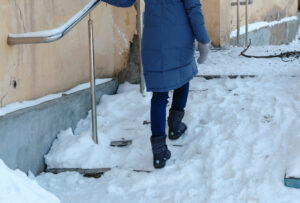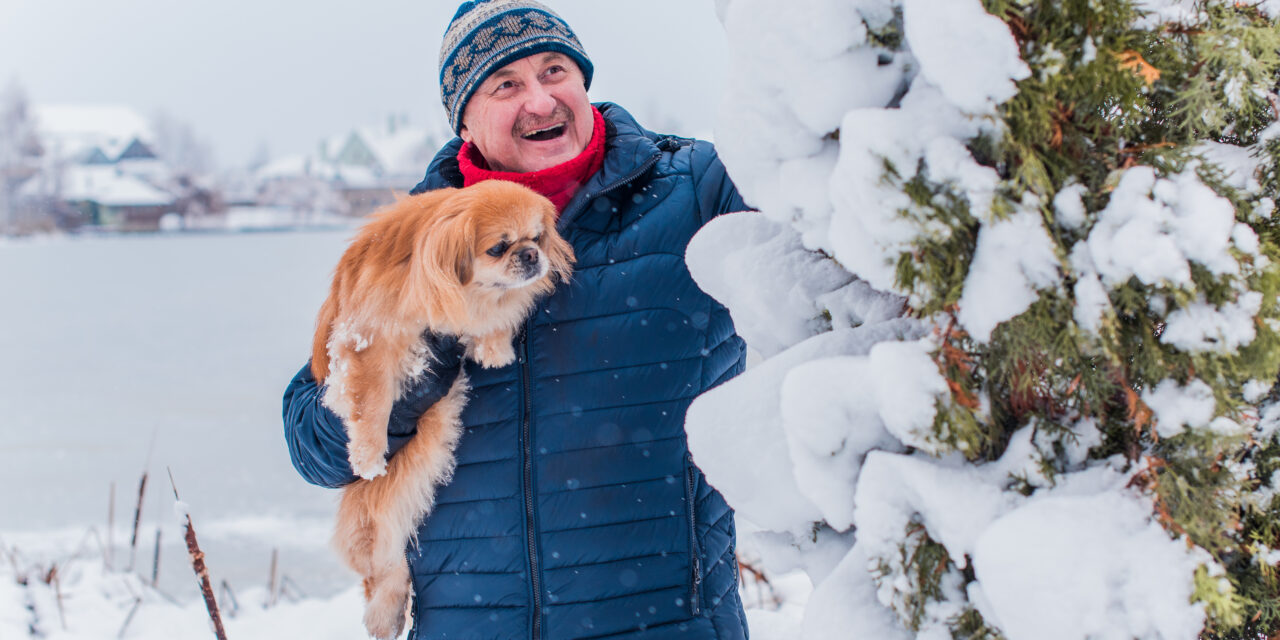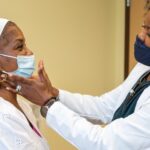By Erica Brecher
With snow and ice in our future, falling is an increased concern. However, many factors other than winter weather can contribute to falling, including home hazards and an individual’s deficits regarding balance.

To reduce an individual’s risk for injuries due to falls, Peter McCabe, MS, ATC, PES, Safety Coordinator at Excelsior Orthopaedics, recommends that individuals be assessed by an expert regarding their ability to maintain their balance while standing. He explains, “Overall, where is their body position? When a person is standing, are their hips moving? Are their ankles moving? For example, an individual’s arms, which usually move to protect balance, can throw someone off who has poor balance.”
Physicians or other providers such as physical therapists or athletic trainers will also look at a person’s clinical history including age, any previous injuries, comorbidities, and how active he or she is. If you want to improve your balance, McCabe says it is important to work on your proprioception, which, simply put, is one’s awareness of their body, space, movement, and effort. “Strengthening your body helps, too. In our physical and occupational therapy clinics, all approaches are used to treat people comprehensively,” says McCabe.
According to the Centers for Disease Control and Prevention (CDC), about 75% of falls happen in the home or close by, with falls happening most frequently in the living room (31%), bedroom (30%), kitchen (18%), bathroom (12%), and hallways (9%).
McCabe offers some important tips to prevent falls.
- Clean up clutter at home. General organization is important. Make sure rugs are slip-resistant and lie flat. The CDC reports that more than 5,000 people visit emergency rooms each year after tripping and falling on throw rugs or loose carpets.
- If you are unsteady on feet, make sure you’re close to something you can grab onto or lean on when getting up to walk, such as being within reach of the car, your bed, or a handrail.
- When out and about, be mindful of the impact your shoes can have on your safety. Ensuring proper arch support is important. For example, sandals don’t provide the required support for the midfoot and ankle. So, if you’re planning a winter vacation, or being active on the trail, playground, or out for a brisk walk, make sure you are wearing sneakers that fit properly.
- Finally, if you find yourself falling, and it’s inevitable, try to protect your head to influence how you land. Falls are the most common cause of traumatic brain injuries (CDC). Your arms are going to be helpful, but it helps to turn in and fall more toward your side to protect your head. While that could result in different injuries such as a sprain or broken clavicle, those injuries are preferable to a severe head injury.
If a fall does occur, Excelsior Express Urgent Care can help. Skip the ER, and schedule your appointment at www.excelsiorortho.com, or call 716-250-9999 to have Excelsior Orthopaedics’ experts diagnose and treat your break, strain, or fracture all in one visit.
Eric Brecher is the Marketing Coordinator for Excelsior Orthopaedics.












